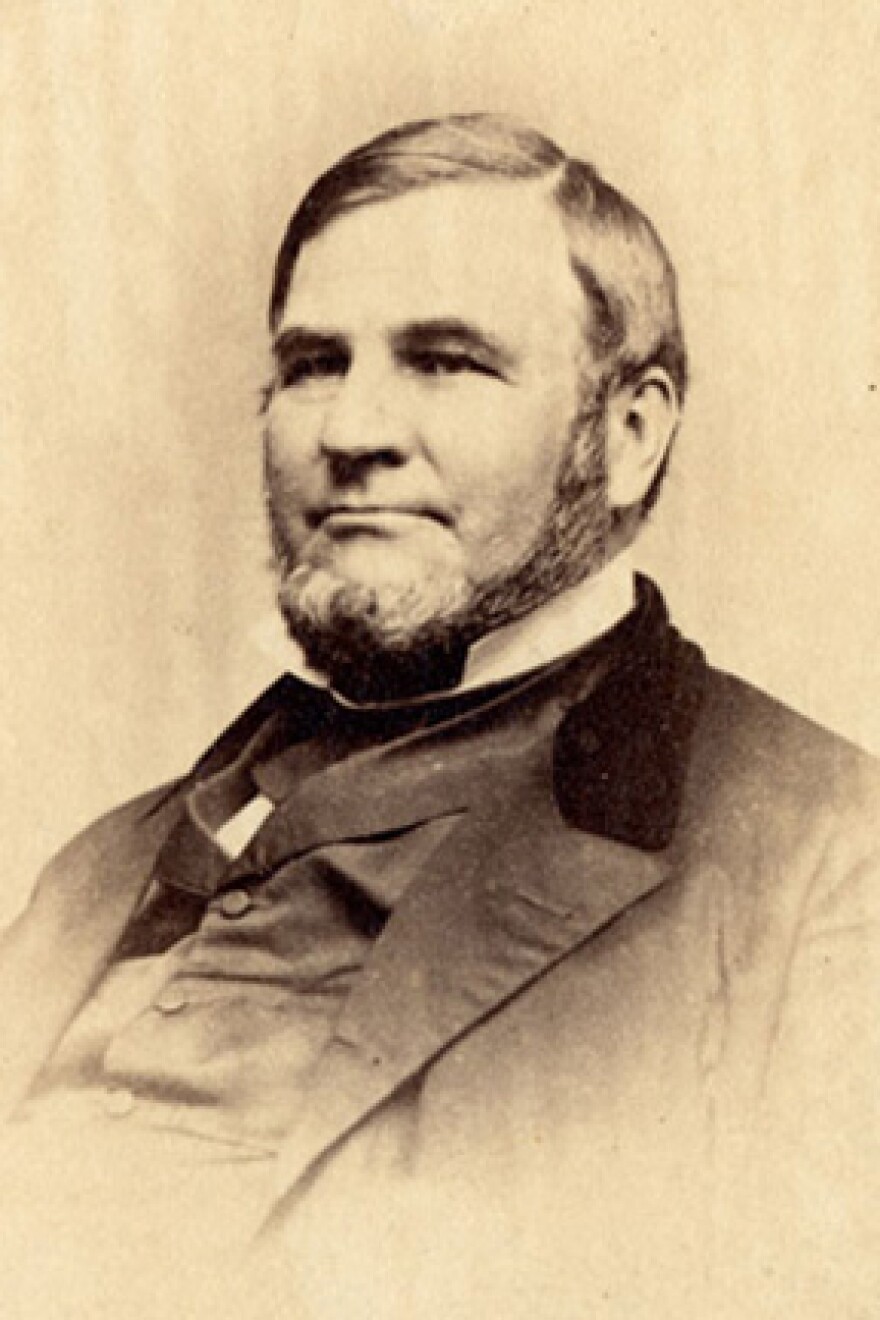Most people in Bloomington-Normal know David Davis as the campaign manager for Abe Lincoln. Most know him as the guy who had a big mansion built on the near east side of Bloomington. Most know him as a judge in the legal circuit where Lincoln rode before his rise to national prominence.
You might even know Davis was a Supreme Court justice, but you probably don’t know much about an opinion he wrote that still resonates today. It’s called Ex Parte Milligan and deals with the question of when civilian courts control trials and when military courts have control of a case.
There’s a new book out on the Milligan case and the issues raised in it. Illinois State University historian Stewart Winger and professor Jon White of Christopher Newport University wrote chapters and edited the book: "Ex Parte Milligan Reconsidered: Race and Civil Liberties from the Lincoln Administration to the War on Terror."
Lambdin Milligan was a Copperhead southern sympathizer in Indiana who was tried in a military court for fomenting insurrection and other acts. Civilian courts were open, but in southern Indiana they were sympathetic to the south. During the Civil War, military tribunals dealt with more than 4,500 civilian cases. The Milligan case came in 1864.
“During the war, David Davis had bit his tongue; he had written to Lincoln privately saying what you are doing is unconstitutional, but he had not said anything publicly. Now that war was over and the Milligan case (was) before the Supreme Court, he stepped in and declared what Lincoln was doing was unconstitutional,” said Jon White.
In writing for the court, Justice Davis held that when civilian order was available, military courts could not intervene.
Despite Davis’ hopes for a sweeping precedent, the case didn’t have a lot of immediate impact.
“Congress was working actively to try to diminish the role of the Supreme Court in these kinds of cases after the war because they understood ... you needed a strong military presence to enforce the rights of the newly freed slaves,” said White.
Military tribunals continued in the south. But as the south rebuilt civilian institutions, the case had an unintended consequence.
“That’s one of the terrible ironies of the case,” said White. “The military could enforce reconstruction and enforce protection of African American rights, but once white southerners regained control of the south, they were going to ignore the rights of the formerly enslaved.”
The man who argued for martial law in the case was Benjamin Butler, a guy who doesn’t have the best reputation as a Civil War general. He was sometimes called "Beast Butler" for the brutal handling of Baltimore and New Orleans, cities he occupied. Given what happened during reconstruction to Black people and how the legal system let white offenders skate free, the authors said Butler should be reconsidered as less of a ham-handed bungler and more of a realist about how to safeguard Black people.
Lincoln has the reputation of being corrosive to civil liberties during the war. He suspended Habeus Corpus, he ordered military trials instead of civilian ones. He arrested journalists for writing things sympathetic to the Confederacy.
White said the context of Milligan might actually help us learn from the Lincoln administration and from Radical Reconstruction something important about the relationship of freedom and power.
For Davis, the location of the defendant’s alleged act was key. For Lincoln and Butler, the question was whether the act happened when courts were functional.
“What I think Milligan case raises as a basic question is which comes first, order or liberty? And I think it makes a powerful case that order comes first and that there is an underlying moral consensus masked by our liberal proceduralism and when we disagree on our fundamental underlying problems, a resort to procedure fails,” said Winger.
Indeed, federal authorities who invoked military powers to intern Japanese during World War II ignored Milligan and functioning civilian courts.
The case surfaced again during the Bush administration's War on Terror. Winger said belligerents on the battlefield give up considerable civil rights. But among those they keep are rights against torture.
“The book brings out that the reason the Bush administration brought all these people to military trials in Guantanamo Bay was to obscure and avoid the fact the evidence they had was gathered by torture. And that torture is illegal under international law as well as American domestic law, said Winger.
There's no subscription fee to listen or read our stories. Everyone can access this essential public service thanks to community support. Donate now, and help fund your public media.



